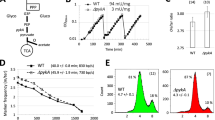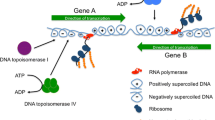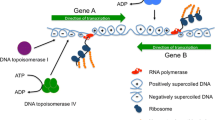Abstract
The process of amplification of genetic material is crucial for production of progeny cells and organisms. Any obstacles in completion of faithful genome replication threaten cellular integrity. Therefore, this process is tightly regulated, mostly at the initiation phase, and—particularly in bacterial cells whose environment may undergo fast changes—adjusted with current growth conditions. Studies of recent years provided evidence that regulation of DNA replication in bacteria is more complex than previously anticipated. Multiple layers of control seem to ensure coordination of this process with the increase of cellular mass and the division cycle. Metabolic processes and membrane composition may serve as points where integration of genome replication with growth conditions occurs. It is also likely that coupling of DNA synthesis with cellular metabolism may involve interactions of replication proteins with other macromolecular complexes, responsible for various cellular processes. Thus, the exact set of factors participating in triggering the replication initiation may differ depending on growth conditions. Therefore, understanding the regulation of DNA duplication requires placing this process in the context of our current knowledge on bacterial metabolism, as well as cellular and chromosomal structure. Moreover, in both Escherichia coli and eukaryotic cells, replication initiator proteins were shown to play other roles in addition to driving the assembly of replication complexes, which constitutes another, yet not sufficiently understood, layer of coordinating DNA replication with the cell cycle. In this work, we describe the current knowledge of biochemical mechanisms regulating initiation of DNA replication in E. coli, which focuses on the control of activity of the DnaA protein, and we expand the view by providing examples of direct linkages between DNA replication and other cellular processes. In addition, we point out similarities of the mechanisms of regulation of DNA replication operating in prokaryotic and eukaryotic cells, and suggest implications for understanding more complex processes, like carcinogenesis.
Access this chapter
Tax calculation will be finalised at checkout
Purchases are for personal use only
Similar content being viewed by others
Acknowledgments
The authors acknowledge support from National Science Center (project grants: 2011/02/A/NZ1/00009 and 2012/04/M/NZ2/00122).
Author information
Authors and Affiliations
Corresponding author
Rights and permissions
Copyright information
© 2015 The Author(s)
About this chapter
Cite this chapter
Glinkowska, M., Boss, L., Węgrzyn, G. (2015). DNA Replication Control in Microbial Cell Factories. In: DNA Replication Control in Microbial Cell Factories. SpringerBriefs in Microbiology. Springer, Cham. https://doi.org/10.1007/978-3-319-10533-8_1
Download citation
DOI: https://doi.org/10.1007/978-3-319-10533-8_1
Published:
Publisher Name: Springer, Cham
Print ISBN: 978-3-319-10532-1
Online ISBN: 978-3-319-10533-8
eBook Packages: Biomedical and Life SciencesBiomedical and Life Sciences (R0)




